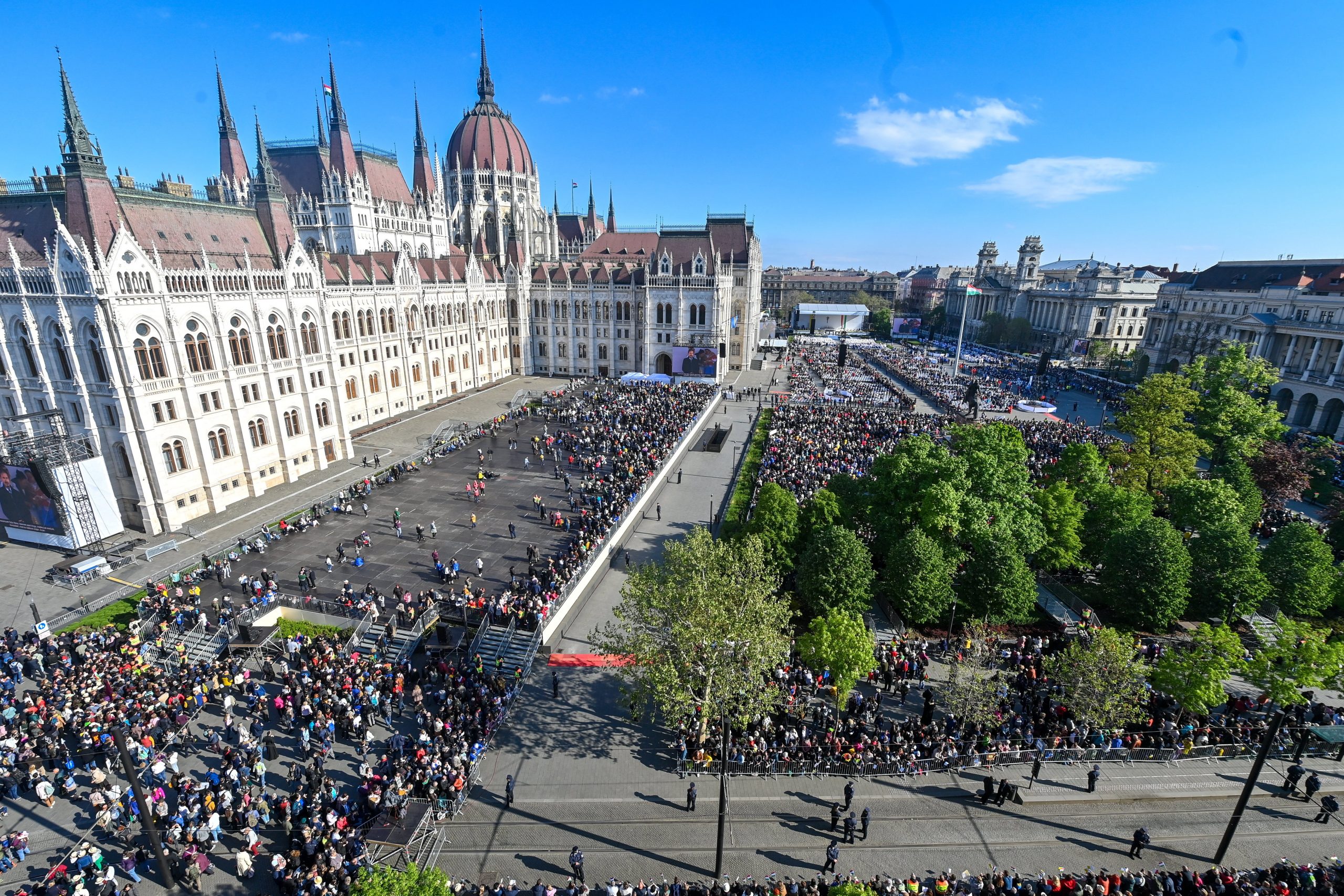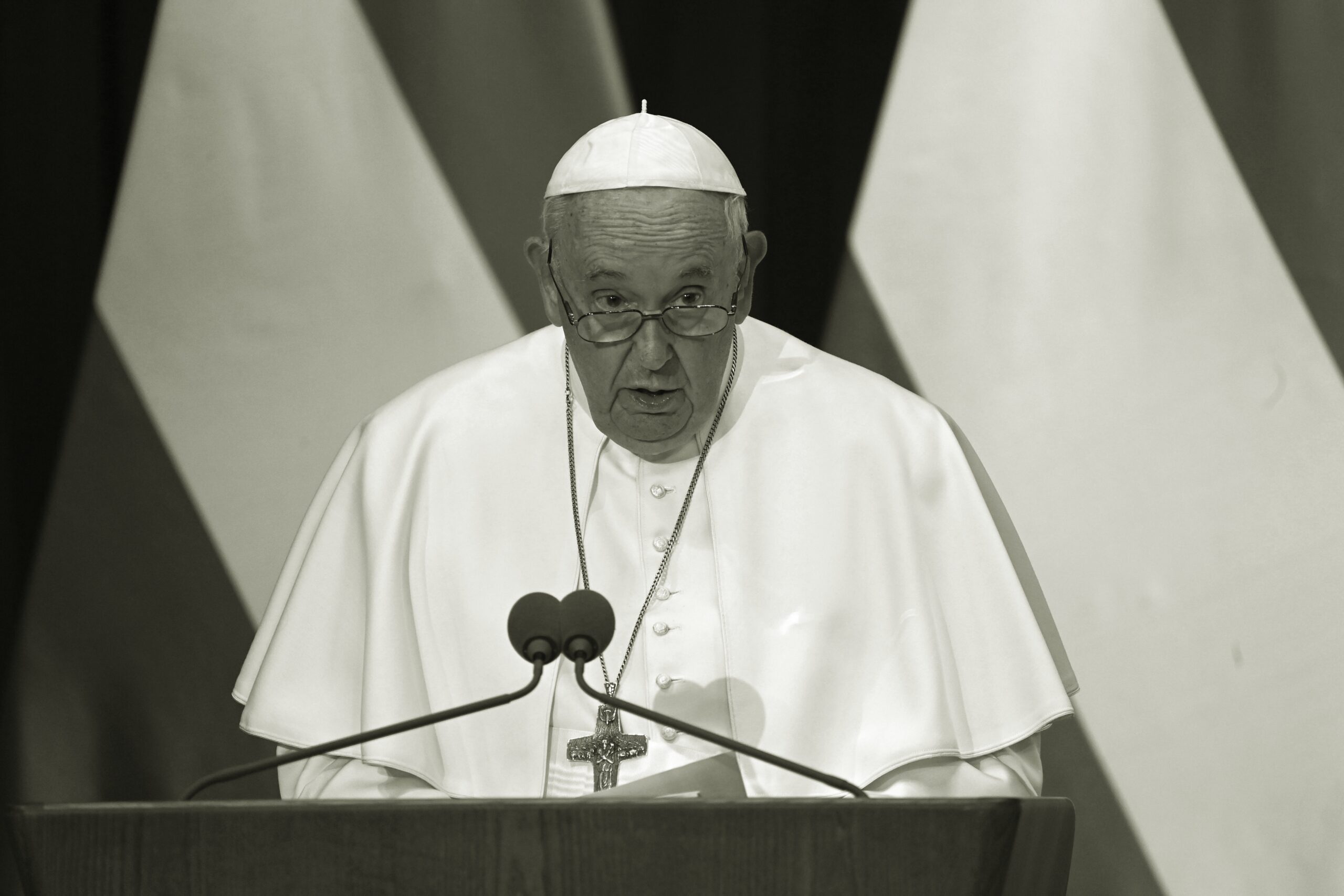
The Mass in front of the National Assembly in Budapest is the culminating event of the Pope's three day visit.Continue reading

The first Latin American leader of the Roman Catholic Church died at the age of 88 at 7:35 am on Monday morning. The cause of Pope Francis’ death has been identified as a stroke, followed by a coma and irreversible cardiocirculatory collapse, Vatican News reported.
Pope Francis was an Argentine Jesuit monk, the 266th Pope and the first Latin American Catholic head of the Church. Born Jorge Mario Bergoglio on December 17, 1936 in Buenos Aires, he was elected head of the Catholic Church on March 13, 2013.
The Vatican News recalled that the Pope was diagnosed with bilateral pneumonia in February and was allowed to return to his home, Domus Sanctae Marthae, after 38 days in hospital. It is reported that in 1957, in his early twenties, Jorge Mario Bergoglio underwent lung surgery in Argentina following a serious respiratory infection, and part of his lung was removed. As he grew older, he suffered frequently from various respiratory illnesses.
According to Archbishop Diego Ravelli, master of apostolic rites, the deceased Pope Francis asked for the funeral rite to be simplified, with the emphasis on expressing the faith of the Church in the body of the risen Christ.
The renewed rite seeks to emphasize even more that the funeral of the Roman Pontiff is that of a pastor and disciple of Christ and not of a powerful person of this world,”
Ravelli stated.
World leaders also bid farewell to the Holy Father, including US President Donald Trump, Israeli President Isaac Herzog and Russian President Vladimir Putin. “Thank you for everything, Holy Father,” Viktor Orbán wrote on his Facebook page in memory of Pope Francis. In his post, the Prime Minister posted a black-and-white picture of him with the Pope.
The government will decide to declare the day of Pope Francis’ funeral a national day of mourning, Deputy Prime Minister Zsolt Semjén told kormany.hu on Monday. This is in line with tradition and expresses the nation’s gratitude to the Holy Father and the nation’s grief, he said.
Pope Francis had a deep connection with the Hungarian people. He worked among Hungarian nuns in Argentina, so whenever he met a Hungarian, he would always say in Hungarian, “God bless you!” He always had a great love for the Hungarian people, which was expressed during his apostolic visit. He himself said that he was deeply touched by the love he was received by the nation,”
the politician emphasized.
“We remember with love the Holy Father’s visits to Hungary in 2021 and 2023, during which it was clear that he kept the Hungarian people in his heart,” Cardinal Péter Erdő, Archbishop of Esztergom and Budapest, told M1 news channel on Monday, reacting to the news of the Catholic Church leader’s death. He said it was also clear that he wanted to meet with Hungarians as a shepherd who also accompanies his faithful on the periphery with love.
Péter Erdő described his personal relationship with the Pope as a “lively relationship”. He recalled that they had met many times, in particular to discuss the functioning of the Council of the Bishops’ Conferences of Europe, and that “everything he said to us was very frank and constructive”.
In a statement to MTI, Péter Erdő said that Pope Francis taught about listening to the created environment and the peripheries. Speaking about the most important elements of the church leader’s work, he recalled that Pope Francis stressed immediately after his election that the church is a church “on the way”.
Another of his mottos was “ascoltare”, or “to listen”, “to listen to the world around us”, to the Church, to the problems of each individual person.
Péter Erdő called the protection of the created environment important, which was also present in the Church’s teaching in the past, but was given special emphasis in Pope Francis’ teaching. His most memorable encyclical is likely to be Laudato si, which has attracted attention and recognition from all of humanity, he emphasized.
„We give thanks to God for the graces we received through his ministry. We remember with special affection his two visits to Hungary and his steadfast commitment to the sacred cause of peace. Let us pray for our departed Holy Father with heartfelt prayers and a fifteen-minute… pic.twitter.com/4sdsbiCywg
— Balázs Orbán (@BalazsOrban_HU) April 22, 2025
Pope Francis also paid special attention to those on the periphery of society and the world, with whom others have little contact. Equally important, he has been determined to strengthen dialogue with other religions. “So he liked to break through walls, he liked to open doors,” reminded Péter Erdő.
Asked how the Pope would be buried, Péter Erdő said that Pope Francis had arranged for his funeral, and that while popes had been buried in St Peter’s Basilica, the funeral would now be erected there, but then he would be transferred to Santa Maria Maggiore Basilica and buried there as he wished.
We are grateful for the service of Pope Francis, who turned to the created man and the created world with Christ-like love, reads a statement of the Presidium of the Ecumenical Council of Churches in Hungary sent to MTI on Monday.
He spoke authentically for all those who live in any way on the margins of this world: physical, spiritual, material, while being committed to the preservation of the inhabited earth,”
they added.
They recalled that when he was elected Pope in 2013, Pope Francis’ first words were “buona sera”, a casual greeting that anticipated his openness. His choice of name, a reference to St. Francis of Assisi, also set the tone for his papacy.
They reminded with gratitude that Pope Francis had visited Hungary twice and that at the International Eucharistic Congress in 2021 “he was greatly influenced by the ecumenical community in which we were able to welcome him and talk to him”.
Via MTI, kormany.hu, Vatican News; Featured photo via MTI/Koszticsák Szilárd